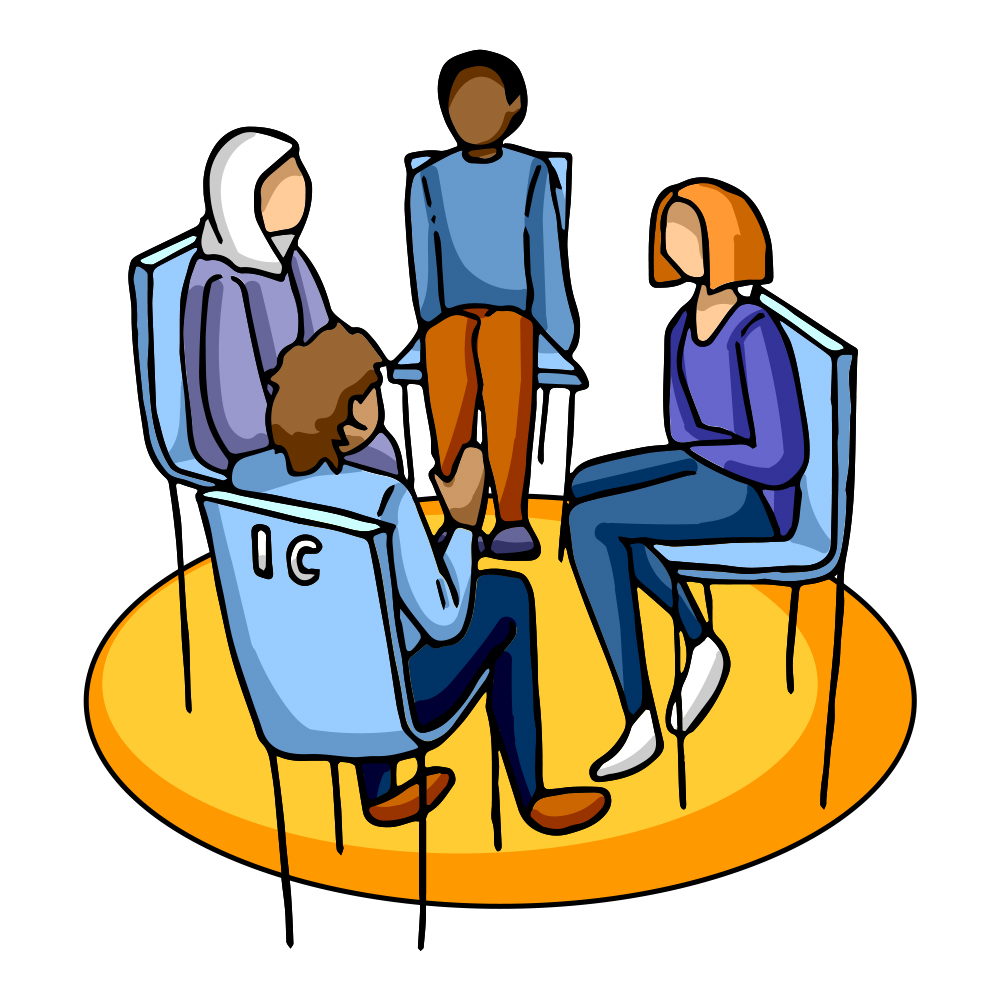The Ithaca College Aphasia Network (ICAN), one of many specialty clinics within the School of Health Sciences and Human Performance, is a free support group offered to individuals with aphasia and is looking for new participants to join the support group.
According to the National Institute of Deafness and Other Communication Disorders, aphasia is damage to the brain that impairs a person’s expression of communication. Aphasia is an acquired language disorder, meaning that it typically stems from injuries to the brain.
Sherry Golden, lecturer in the Department of Speech-Language, Pathology and Audiology, oversees ICAN and helps graduate students to guide the participants along in discussions. Golden said ICAN’s purpose is to provide a safe space for members of the community who suffer from aphasia.
“I think the beauty of a support group is that it is a non-judgmental place for people who have similar backgrounds to come together and meet each other,” Golden said. “They find kinship, friendship, support, a sounding board, a place to feel comfortable in, expressing themselves or taking the time they need to understand and [have a] conversation.”
While there is no age limitation to who can join the support group, Golden said it is focused more on adults with aphasia. Golden said support groups like ICAN are beneficial for members because they focus on general wellness.
“You don’t need to have insurance [to pay] for it and it’s not direct intervention,” Golden said. “But it’s something that is ongoing maintenance, both for practicing your communication skills and also for your social-emotional well-being.”
Miller said caregivers for people impacted by aphasia can be a part of the group as well.
“We can provide recommendations and work on strategies for improving communication skills, but we can also provide caregivers with those strategies,” Miller said. “For instance: reducing distractions, making sure that you give the family member ample time to process and respond to the question … use of simpler vocabulary [if needed].”
Golden emphasized that aphasia is not something that holds back an individual’s ability to learn.
“People with aphasia are just as smart as they were before they had aphasia. They can still learn and they can still have strong ideas and opinions,” Golden said.
Golden said that from what she has observed, the number of participants in the support group ranges between three and six people.
“It really ebbs and flows depending on … how well it’s advertised, and also just the incidence of new onset of aphasia in the community,” Golden said. “There are people who went for years and years to the support group, and then slowly stopped coming because they feel like they have kind of graduated from that.”
Liz Miller, a clinical instructor in the Department of Speech-Language and Audiology, serves as the clinical supervisor for early intervention speech therapy and interim clinical director. Miller said she hopes to increase participants to provide better services to the community.
“We know there’s a need out there for all people [to have] more connection in our community, and especially with those people that are having communication challenges,” Miller said. “So we’d love to add more participants at this point.”
Golden said the group also provides participants with a chance to practice their communication skills through tools provided by student clinicians who act as facilitators.
“We provide visual support, we provide written cues, we have all sorts of tricks up our sleeves to get people to express themselves or in turn, to understand what somebody else is saying,” Golden said.
Golden said the support group allows graduate students to learn more about aphasia by focusing on interaction and not intervention, so that students can take a more person-first approach.
“In the world of graduate studies and practicing your clinical experiences, there’s a lot of report writing and there’s a lot of testing and there’s a lot of ongoing analysis,” Golden said. “And sometimes as a student clinician, I think that becomes very stressful and kind of takes away from actually getting to know the people that you’re working with.”
Shannon Veninger is a second-year graduate student who first engaged with the ICAN program as a first-year undergraduate student and later went on to facilitate it as a graduate student.
She said the program helped her to grow her skills as a speech pathologist, and gain more of an understanding of aphasia.
“Each week that [I] was in the session, I was learning something new about the clients, something new about how I was helping the system and their diagnosis,” Veninger said.
Veninger said her role as a facilitator was less focused on intervention and more focused on promoting participation and general communication skills.
“We’re not treating them necessarily,” Veninger said. “We’re helping them learn different ways that they could utilize to get that communication … in the best way that they possibly can for the other participants to understand, and to again keep that conversation going.”
Veninger said that while ICAN focused on providing support to individuals with aphasia, she learned many general skills that are applicable in other spaces as well.
“I learned so many different things just from this one placement,” Veninger said. “I’ll be moving to a veterans hospital in my second block for my externship and I’m already looking back on notes and stuff like that, that we took from those sessions in those groups.”
Veninger said that seeing participants of ICAN build their confidence over time was the most fulfilling aspect of her experience.
“To see them in the beginning very much more reserved to slowly saying more and more and more each session was so rewarding,” Veninger said. “You kind of saw that confidence come out, especially when we introduced a new tactic to help them communicate or understand and comprehend and they were utilizing that entirely on their own, without any of our assistance.”














